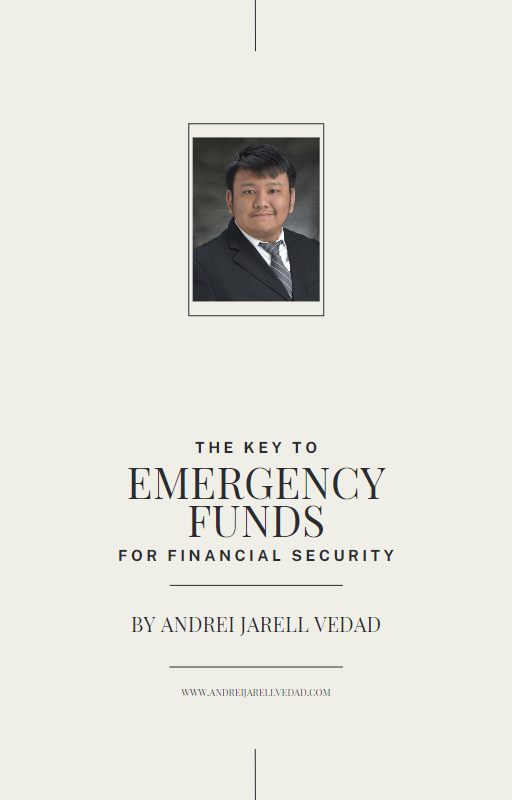
Table of Contents
Money is an important part of our lives. Whether we like it or not, it’s what we use to buy the things we need and want. But, financial stability and success doesn’t happen overnight. It requires a plan, commitment, and motivation to achieve financial goals. Staying motivated throughout the journey can be a challenge, but it is crucial for success. In this article, we will discuss why staying motivated is important, and provide tips and strategies to help you stay motivated and achieve your financial goals. So, if you’re ready to take control of your finances and achieve your goals, read on.
Understanding Your “Why”

When it comes to setting and achieving financial goals, it’s important to understand your “why”. In other words, why do you want to achieve these goals? What is driving you to pursue financial success? Understanding your “why” can help you stay motivated and focused on your goals, even when the going gets tough. Here are some steps to help you define your financial goals and determine your motivation.
Defining Your Financial Goals
The first step in understanding your “why” is to define your financial goals. What do you want to achieve financially? Do you want to pay off debt, save for a down payment on a house, or start investing for retirement? Make a list of your financial goals and be as specific as possible. Instead of saying “save more money,” for example, consider setting a specific savings goal, such as “save P100,000 for a down payment on a house by the end of the year.”
Determining Your Motivation Behind Your Financial Goals
Once you’ve defined your financial goals, it’s time to dig deeper and determine your motivation behind these goals. Why do you want to achieve these goals? What will it mean for you and your life? Will it give you more freedom, security, or peace of mind? Will it allow you to provide for your family, pursue your passions, or travel the world? Understanding your motivation can help you stay committed to your goals, even when the journey gets tough.
Creating A Vision Board To Visualize Your Goals
Finally, consider creating a vision board to help you visualize your financial goals and stay motivated. A vision board is a collage of images, quotes, and other visual representations of your goals and aspirations. It can serve as a daily reminder of what you’re working toward and why. You can create a physical vision board by cutting out images and quotes from magazines and other sources, or you can create a digital vision board using tools like Pinterest or Canva. Place your vision board in a prominent location where you’ll see it every day, such as your bedroom or home office.
Breaking Down Your Goals

Setting financial goals is one thing, but breaking them down into manageable steps is another. That’s why it’s important to create a plan that is Specific, Measurable, Achievable, Relevant, and Time-bound (SMART). By setting SMART goals, you’re creating a roadmap to follow that will increase your chances of success.
Setting SMART Goals
The first step in breaking down your goals is setting SMART goals. This means your goals should be Specific, Measurable, Achievable, Relevant, and Time-bound. Specific goals are clear and well-defined, while measurable goals are quantifiable so that you can track your progress. Achievable goals are realistic and attainable, while relevant goals align with your overall financial plan. Finally, time-bound goals have a specific deadline.
Creating A Step-by-Step Plan
Once you have set your SMART goals, it’s time to create a step-by-step plan to achieve them. This plan should be detailed and specific, outlining every action you need to take to reach your goals. Start by breaking down your larger goals into smaller, more manageable steps. Then, assign deadlines to each step, so you can track your progress and hold yourself accountable.
Tracking Your Progress
Tracking your progress is essential to achieving your financial goals. It helps you stay motivated and provides a clear picture of your progress toward your goals. There are many ways to track your progress, from simple spreadsheets to online tools and apps. Choose a method that works best for you and stick with it. Review your progress regularly and make adjustments to your plan as needed.
Overcoming Obstacles
When it comes to achieving financial goals, obstacles are bound to arise. These obstacles can range from unexpected expenses to the loss of a job, and they can threaten to derail even the most well-planned financial strategy. However, it’s important to remember that obstacles are a normal part of the journey and can be overcome with the right mindset and approach.
Identifying Potential Obstacles
The first step in overcoming obstacles is to identify potential roadblocks before they happen. This requires a thorough analysis of your financial situation and an understanding of the potential risks and challenges that could arise. This may include unexpected expenses, changes in the market, or even personal issues that could affect your ability to stick to your plan.
Creating A Plan To Overcome Obstacles
Once you’ve identified potential obstacles, the next step is to create a plan to overcome them. This may involve building an emergency fund to cover unexpected expenses, diversifying your investments to protect against market fluctuations, or seeking professional advice to help navigate challenging financial situations. The key is to be proactive and have a plan in place before obstacles arise.
Staying Focused And Positive During Setbacks
Of course, even the best-laid plans can hit a snag. When setbacks do occur, it’s important to stay focused and positive. This may involve taking a step back, reevaluating your strategy, and making adjustments as needed. It may also involve seeking support from friends, family, or a financial advisor to help get back on track.
In the end, overcoming obstacles is all about mindset. By approaching challenges with a proactive, positive attitude and a solid plan in place, you can stay on track towards achieving your financial goals. Remember, obstacles are simply opportunities to learn and grow, and with the right mindset, you can overcome any challenge that comes your way.
Developing Habits For Financial Success

When it comes to achieving financial goals, developing the right habits can make all the difference. The right habits can help you save money, stick to your budget, and achieve your financial goals faster. Here, we’ll explore the importance of habits in achieving financial success and provide some examples of financial habits to develop, as well as tips for building new habits and breaking bad ones.
Importance Of Habits In Achieving Financial Goals
Habits play a significant role in achieving financial goals because they help us stay consistent with our actions. Good habits can help us stay on track and resist temptations that could derail our progress. They can also help us automate our finances, making it easier to save money and pay bills on time. On the other hand, bad habits can lead to overspending, missed payments, and missed opportunities to save.
Examples Of Financial Habits To Develop
There are a variety of habits you can develop to help you achieve your financial goals. Some examples include:
- Saving a percentage of your income every month
- Creating and sticking to a budget
- Automating bill payments
- Using cash instead of credit cards for everyday purchases
- Checking your credit report regularly
- Investing in your retirement fund
- Tracking your spending to identify areas where you can cut back
- Paying off debt aggressively
Tips For Building New Habits And Breaking Bad Ones
Building new habits and breaking bad ones can be challenging, but it’s important to remember that it takes time and consistency. Here are some tips for developing new habits:
- Start small: Don’t try to change everything at once. Pick one or two habits to focus on initially.
- Make it a routine: Habits are more likely to stick if they become part of your daily routine.
- Get an accountability partner: Find someone to hold you accountable for your progress and celebrate your successes with you.
- Track your progress: Keep a record of your progress to help you stay motivated and identify areas where you need to improve.
- Focus on the benefits: Remind yourself of the benefits of the habits you’re trying to develop, such as financial security or freedom from debt.
- Be kind to yourself: Remember that building new habits takes time, and setbacks are a natural part of the process.
Breaking bad habits can be just as challenging as building new ones. Here are some tips for breaking bad habits:
- Identify triggers: Figure out what triggers your bad habits so you can avoid them.
- Replace bad habits with good ones: Instead of simply trying to stop a bad habit, replace it with a good one.
- Get support: Reach out to friends or family members for support and encouragement.
- Use positive reinforcement: Reward yourself for breaking a bad habit, such as treating yourself to something you’ve been wanting.
- Practice self-compassion: Remember that breaking bad habits takes time and effort, and don’t be too hard on yourself if you slip up.
In conclusion, developing the right habits can help you achieve your financial goals faster and more efficiently. By understanding the importance of habits in achieving financial success, and following the tips for building new habits and breaking bad ones, you can set yourself up for long-term financial stability and success.
Staying Accountable

Staying accountable is an essential part of achieving your financial goals. It helps you to stay on track, identify areas where you need to improve, and celebrate your progress. In this section, we will discuss the benefits of accountability, how to find an accountability partner, and the importance of tracking and sharing your progress with others.
The Benefits Of Accountability
Accountability can provide many benefits when it comes to achieving your financial goals. It helps to keep you focused on your goals, gives you a sense of direction, and provides motivation to keep going. When you are accountable to someone else, it creates a sense of responsibility that can help you to stay committed to your goals.
Having an accountability partner can also help to keep you honest with yourself. It can be easy to make excuses for why you haven’t achieved your goals, but when you have someone else holding you accountable, it can be harder to make those excuses.
Finding An Accountability Partner
Finding an accountability partner can be a challenge, but there are several ways to go about it. You can start by reaching out to friends or family members who share your financial goals. You can also look for accountability groups or forums online, where you can connect with like-minded individuals.
When looking for an accountability partner, it’s important to find someone who is reliable, supportive, and committed to helping you achieve your goals. They should also be someone who is willing to be honest with you, even if it’s difficult.
Tracking And Sharing Progress With Others
Tracking your progress is a critical part of staying accountable. It helps you to see how far you have come and what you still need to do to achieve your goals. You can track your progress using a spreadsheet, journal, or app that allows you to monitor your income, expenses, and savings.
Sharing your progress with others is also important. It can be motivating to see the progress of others who are also working towards financial goals. You can share your progress with your accountability partner or in a group or forum.
Celebrating Success

When it comes to achieving financial goals, it’s important to recognize and celebrate even the smallest of successes along the way. Celebrating progress can help maintain motivation and inspire continued progress towards long-term financial success. In this section, we’ll explore the importance of celebrating small successes, ways to reward yourself for milestones achieved, and the value of reflection on your financial journey so far.
The Importance Of Celebrating Small Successes Along The Way
Many of us have long-term financial goals that may take months or even years to achieve. During this time, it can be easy to lose sight of the progress we’ve made and focus solely on how far we still have to go. Celebrating small successes can help break up the journey into manageable steps, boost motivation, and provide a sense of accomplishment.
For example, if your goal is to invest P300,000 in your stock portfolio in a year, celebrate each time you invested P10,000. Acknowledge the progress you’ve made and treat yourself to something that feels rewarding and enjoyable.
Rewards And Treats For Achieving Milestones
Rewarding yourself for achieving milestones can be a great way to stay motivated and on track towards your long-term financial goals. However, it’s important to choose rewards that align with your overall financial goals and budget. Some examples of rewards and treats might include:
- A small vacation or weekend getaway
- A new outfit or accessory
- A dinner at your favorite restaurant
- A spa day or massage
- A concert or event ticket
- A new book or gadget
Keep in mind that rewards don’t have to be expensive or extravagant. Small treats can be just as effective in providing a sense of accomplishment and motivation to keep going.
Reflection On The Journey So Far
Reflecting on your financial journey so far can be a powerful motivator in achieving long-term financial success. Take time to acknowledge the progress you’ve made and consider the lessons you’ve learned along the way. Reflection can help identify areas where you’ve excelled and where you may need to focus more attention in the future.
Reflection can also help keep you motivated by reminding you of why you started on this journey in the first place. If you’ve paid off a significant portion of debt or saved a significant amount of money, take time to appreciate the effort and hard work you put in to achieve these milestones.
Celebrating small successes, rewarding yourself for milestones achieved, and reflecting on your financial journey so far can help keep you motivated and on track towards achieving your long-term financial goals. Remember that it’s important to choose rewards and treats that align with your overall financial goals and budget. By acknowledging progress and celebrating achievements along the way, you can maintain momentum and stay focused on your path towards financial success.
Staying Motivated For The Long Term

Staying motivated to achieve financial goals is an ongoing process that requires commitment and dedication. It’s not enough to just set goals and create a plan, you must also maintain your motivation and adjust your approach as needed over time. Here are some tips for staying motivated for the long term:
Maintaining Motivation As Time Goes On
One of the biggest challenges when it comes to staying motivated for the long term is maintaining your enthusiasm and drive over time. It’s easy to get excited and motivated when you first set your goals, but as time goes on, it can be easy to lose steam. To maintain your motivation, it’s important to stay connected to your “why” and to remind yourself of the benefits of achieving your goals. You can do this by creating a vision board or by regularly reviewing your goals and progress.
Revisiting Goals And Adjusting Plans As Needed
Another important aspect of staying motivated for the long term is being willing to revisit your goals and adjust your plans as needed. As you progress towards your goals, you may find that your priorities or circumstances change, and you may need to make adjustments to your plan. It’s important to be flexible and adaptable and to view any changes as opportunities to learn and grow.
Staying Committed To Your Financial Goals
Finally, staying committed to your financial goals is essential for staying motivated for the long term. This means making your goals a priority and being willing to make sacrifices and stay disciplined in order to achieve them. It’s also important to have a support system in place to help keep you accountable and motivated.
In conclusion, staying motivated for the long term requires dedication, flexibility, and commitment. By maintaining your motivation, revisiting your goals, and staying committed to your financial goals, you can achieve success and create the life you want.
Conclusion
Achieving financial goals requires a combination of planning, discipline, and persistence. It’s important to understand your “why” and create a clear vision for your future. Setting SMART goals and breaking them down into manageable steps, tracking your progress, and developing positive financial habits can help keep you motivated and on track. When obstacles arise, it’s important to stay focused and positive and have a plan in place to overcome them. Being accountable to yourself and others, celebrating small successes, and staying committed to your goals are all key factors in maintaining motivation for the long term. Remember, staying motivated to achieve financial goals is a journey, not a destination. By following these tips and staying focused on your “why,” you can build a brighter financial future for yourself and your loved ones.
Relevant Blog Posts
Here are some relevant blog posts that you can read after this one:
- The Key To Emergency Funds For Financial Security
- Ways To Secure Your Finances Right Now
- Building An Emergency Fund On A Low Income
- How To Stay Motivated To Achieve Your Financial Goals
- Budgeting For College Students in the Philippines
- How To Save Money On A Tight Budget
- 10 Lucrative Side Hustles You Can Start from Home Today
- 10 Profitable Small Business Ideas for Filipinos in 2023
- Passive Income Ideas For Filipinos
- Frugal Living Tips For Filipinos
- Smart Habits That Helps You Save Money
- Get Debt-Free: Expert Tips and Tricks to Pay Off Your Debts
- Money Management Made Easy: Why You Need Separate Budget Accounts
- Budgeting 101: How to Create a Personal Budget that Works for You
I hope these blog posts are useful and informative to you.
For Your Reference
Budgeting
For your reference, you can read these blog articles relevant to budgeting:
- What Is Financial Literacy?
- Budgeting When You’re Broke
- The Beauty of Budgeting
- 5 Rules to Improve Your Financial Health
- Calculate Your Debt-to-Income Ratio
- 8 Financial Tips for Young Adults
- 5 Signs That You’re Living Beyond Your Means
- 4 Easy Budgeting Techniques
- 3 Common Budgeting Challenges to Overcome
- Zero-Based Budgeting: Benefits and Drawbacks
- Best Budgeting Apps
- What Is a Budget? Plus 10 Budgeting Myths Holding You Back
- Basic Budgeting Tips Everyone Should Know
- Budgeting Basics To Help You Manage Your Money
- Understanding Budgeting & Personal Finance
- 5 Simple Budgeting Guidelines to Follow
- The 50/30/20 Rule of Thumb for Budgeting
- Strategies for Budgeting and Saving Money
- Different Budgeting Techniques to Try
- Understanding Budgeting & Personal Finance
- Budgeting for Kids: How To Teach It and Why It Matters
- Budgeting for Teens: What You Need to Know
- 10 Budgeting Pitfalls and How to Avoid Them
Debt
For your reference, you can read these blog articles relevant to debt:
- What Is Debt?
- Student Loan Debt vs. Credit Card Debt
- Good Debt vs. Bad Debt: What’s the Difference?
- A Step-by-Step Guide To Getting Out of Debt
- Choose the Debt Payoff Strategy That’s Right for You
- A Guide to Debt Settlement
- 12 Tips for Sticking to Your Debt Payoff Plan
- 6 Steps to Get Out of Debt
- How to Pay Off Credit Card Debt
- What Is the Debt Avalanche Strategy?
- What Is Debt Consolidation?
- What Is a Debt Repayment Plan?
- How to Create a Debt Elimination Plan
- Debt Avalanche vs. Debt Snowball: What’s the Difference?
- Debt Settlement: Cheapest Way to Get Out of Debt?
Emergency Funds
- Why an Emergency Fund Is More Important Than Ever
- How to Build an Emergency Fund
- The best protection against bad trouble is good planning
- How Much Cash Should I Keep in the Bank?
- Emergency Funds
- 8 Reasons You Need an Emergency Fund
- What Amount Do Retirees Need in an Emergency Fund?
- How To Use Your Emergency Fund and Make It Last
- Rule of Thumb: How Big Should Your Emergency Fund Be?
- When to Use Your Emergency Fund
- Rainy Day Fund vs. Emergency Fund – Do You Need Both?
- It’s Time to Build a Better Emergency Fund
- How to Prepare Your Emergency Fund
- Emergency Cash Reserves
- 7 Tips for Building an Emergency Fund
Disclaimer
I am not a financial advisor. Please note that the information provided on this website is for general informational purposes only and should not be considered as financial advice.
While I strive to ensure the accuracy and timeliness of the information presented, financial situations can vary, and the content may not be applicable to everyone. Therefore, it is essential to consult with a qualified financial professional or advisor before making any financial decisions.
It is important to understand that investing and financial planning involve risks, and there are no guarantees of specific outcomes or returns.
By accessing this website or engaging in consultations, you acknowledge and agree that any actions taken based on the information provided are at your own risk, and I shall not be held liable for any direct or indirect consequences arising from such actions.
Get My E-books For Free!


Take control of your financial future and download my e-books: “Ways to Secure Your Finances Right Now” and “The Key To Emergency Funds For Financial Security” today! This comprehensive guides are packed with practical strategies and expert advice to help you achieve financial security and improve your financial literacy.
By subscribing to my Substack Newsletter, you’ll gain access to exclusive content, regular updates, and valuable insights on personal finance. You’ll stay informed about the latest financial trends, investment opportunities, and money-saving tips.
Don’t miss out on this opportunity to equip yourself with the knowledge and tools needed to secure your financial future. Join our community of motivated individuals who are committed to achieving financial freedom and success.
Subscribe to my Substack Newsletter today and get instant access to the e-book “Ways to Secure Your Finances Right Now.” Take the first step towards a brighter financial future. Your journey to financial security starts now!
Affiliate Links Disclaimer
My blog posts contain referral/affiliate links, so I can potentially earn via commission. It would help me a lot when you use my referral/affiliate links

Andrei Jarell Vedad is a passionate financial literacy advocate from the Philippines. With a background in Information Technology and currently pursuing a law degree, Andrei combines his knowledge and expertise to empower individuals in managing their personal finances. Through his blog and extensive research, he shares practical tips, strategies, and thought-provoking articles to help readers make informed financial decisions and achieve their financial goals. With a global perspective, Andrei aims to inspire positive change and foster financial well-being, not only in the Philippines but also worldwide.



